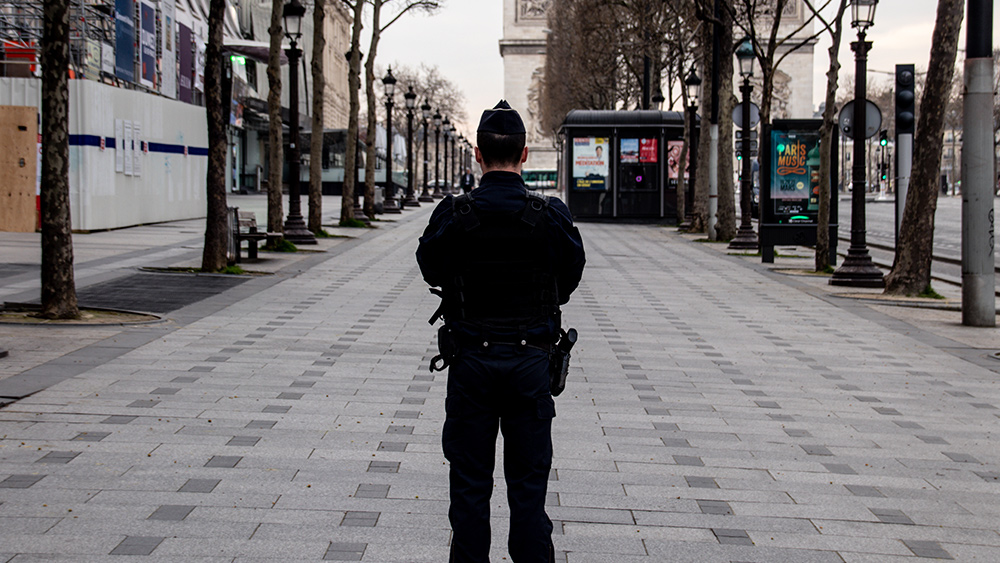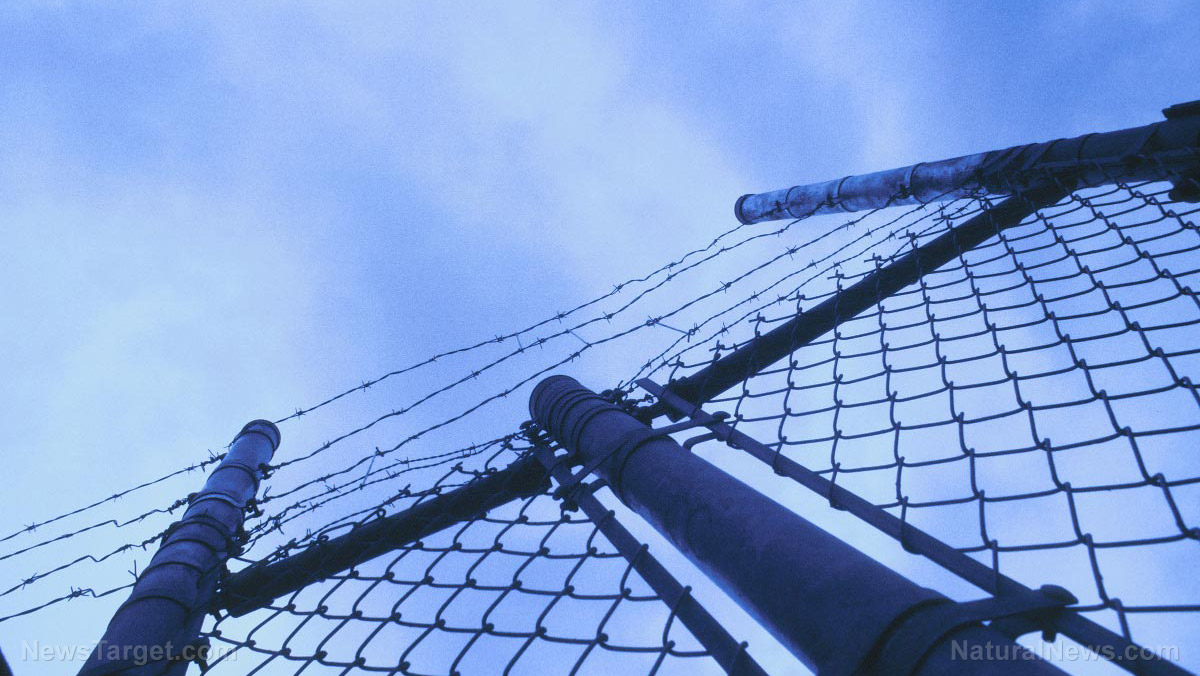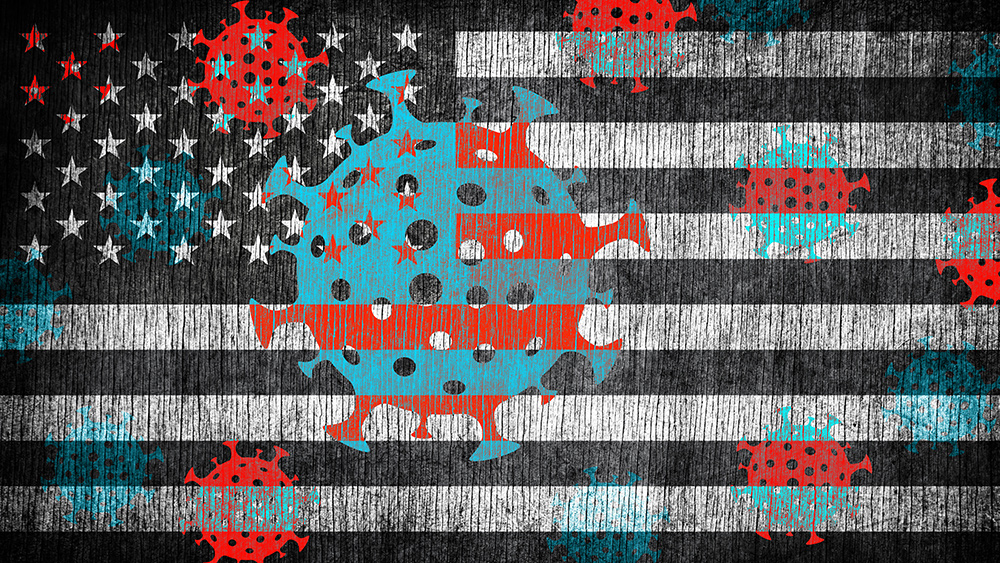WHO reverses course, again: Lockdowns as primary response to COVID-19 now said to be “damaging”
10/20/2020 / By Ramon Tomey

The World Health Organization (WHO) has advised against lockdowns as a primary response to the COVID-19 pandemic after seeing the extent of damage they have caused. The organization’s latest advice is a complete turnaround from its earlier stance, which recommended lockdowns to address the coronavirus’s spread.
Dr. David Nabarro, the special envoy on COVID-19, told The Spectator that the organization does not advocate lockdowns as the primary means of control of this virus. He cited the economic effect of lockdowns worldwide as proof that the measures do more harm than good. Nabarro added that the economic impact of lockdowns gives rise to other problems: “We may well have a doubling of world poverty by next year [and] at least a doubling of child malnutrition.”
Instead of lockdowns, Nabarro suggested countries “work together and learn from each other” in developing “better systems” for controlling the pandemic. The only time a lockdown should be justified was when countries needed to reorganize their efforts, rebalance its resources and protect their exhausted health workers, he added.
The WHO previously recommended lockdowns as an effective measure to address the spread of the coronavirus
Lockdowns became ubiquitous this year, as governments around the world scrambled to contain COVID-19, but the shutdowns have done little to stop the pandemic. Rather, the restrictive measures in cities, states and entire countries have ruined businesses and crippled livelihoods. The lockdowns also impacted individuals themselves as they bore the brunt of isolation and cabin fever due to limited movement.
Some WHO officials have previously encouraged the use of lockdowns to contain the pandemic in a number of countries. Dr. Takeshi Kasai, regional director for the Western Pacific, said in April that lockdowns would be the “new normal” until a vaccine is found. Kasai added that people must adapt their lives and health systems alongside the current situation.
Another official, Health Emergencies Program Executive Director Dr. Michael Ryan, warned in July that countries who fail to address early signs of resurging outbreaks could have full lockdowns as “the only option” available to them.
The full scope of the damage lockdowns caused is just emerging
Support for lockdowns has slowly eroded as the coronavirus pandemic lingers, and the effects of shutdowns are coming to light.
Various economic sectors have been hard hit by the lockdowns, causing small businesses to close and larger ones to reduce operations. The pandemic has the hardest hit the travel sector: Countries’ varying lockdown rules have caused flight cancellations. Developing economies that depend on tourist cash are preparing for worse times ahead.
The lockdown orders even affected small businesses in the U.S., with some permanently closing down. Thus, some entrepreneurs have sued their respective state governors over these “unconstitutional” shutdown orders – with judges favoring small business owners. (Related: AG Barr: Coronavirus lockdowns “greatest intrusion on civil liberties” since slavery.)
In September, District Judge William Stickman IV ruled that Pennsylvania Gov. Tom Wolf and State Health Secretary Dr. Rachel Levine’s lockdown orders were unconstitutional. The magistrate found that Wolf and Levine’s orders violated rights enshrined in the First and Fourteenth Amendments.
Although Stickman acknowledged that the measures were implemented “with the good intention of addressing a public health emergency,” he added that any solution to the pandemic “can never be permitted to supersede the commitment to individual liberty.”
A month later, Michigan Attorney General Dana Nessel announced that her office would no longer implement Gov. Gretchen Whitmer’s executive orders related to COVID-19. Nessel’s announcement came after the state’s Supreme Court ruled that Whitmer’s extension of the state of emergency in Michigan was unconstitutional and did not have proper authority.
Ryan Jarvi, press secretary for the attorney general, said in a statement: “In light of the Supreme Court’s decision … the Attorney General will no longer enforce the governor’s executive orders through criminal prosecution.”
It will definitely take years before the world bounces back from the coronavirus pandemic and the subsequent lockdown orders to keep it at bay.
Sources include:
Tagged Under: coronavirus, coronavirus lockdowns, Coronavirus pandemic, coronavirus restrictions, covid-19, covid-19 pandemic, economy, lockdown orders, lockdowns, pandemic, pandemic response, primary response, quarantine, risk, SARS-CoV-2, shutdown order, shutdowns, WHO, World Health Organization, Wuhan coronavirus
RECENT NEWS & ARTICLES
COPYRIGHT © 2017 MEDICAL EXTREMISM


















